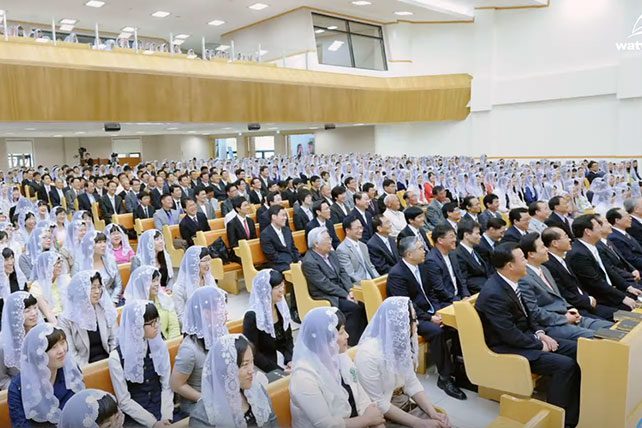When it comes to giving reasons for our faith, we Christians are playing far too defensive a game.
We’ve believed that Christianity is declining. It isn’t. We’ve assumed Christianity can’t stand up in the university. It can. Too many of us think Christianity is threatened by diversity. It never has been. And too few of us think Christian sexual ethics are sustainable in the modern world. They are. On these and many other fronts, we have conceded far more ground to secularism than it deserves.
But we’ve also been playing too aggressive a game. We’ve majored on point-scoring and culture-warring, when the Bible calls us to “gentleness and respect” (1 Pet. 3:15). We’ve propagated weak arguments without listening to real experts. And we’ve blindly stepped out into cultural traffic, rather than taking our lead from those with the credibility to speak.
If we are to be faithful in this cultural moment, we must be neither retreaters nor attackers, neither (needlessly) defensive nor (faithlessly) aggressive. Instead, we must go on a “gentle offensive.” Here are five things that will help.
1. Know Our Moment
Forty years ago, sociologists predicted religious decline. Modernization had bred secularization in Western Europe, and where Western Europe led (so the logic went), the rest of the world would follow.
But that prophecy failed.
To the surprise of many in the Western academy, the question for the next generation is not, ‘How soon will religion die out?’ but ‘Christianity or Islam?’
In the West, religious identification has certainly declined and looks set to decline further. But the rest of the world has not followed suit. In the next 40 years, Christianity is set to remain the world’s largest belief system, claiming 32 percent of the global population (a 1 percent increase over its current share), while Islam is expected to grow substantially from 24 percent to 31 percent. Meanwhile, the portion of humanity that does not identify with any particular religion (including atheists, agnostics, and “nones”) is set to decline from 16 percent to 13 percent. Indeed, if China swings toward Christianity as rapidly as some experts expect, the non-religious category could shrink even more, and the proportion of Christians would increase.
To the surprise of many in the Western academy, the question for the next generation is not, “How soon will religion die out?” but “Christianity or Islam?”
2. Level the Playing Field
The New Atheists claimed that religion poisons everything. This warps the thinking of our secular friends, but it doesn’t line up with the facts. A large body of empirical evidence shows that regular religious participation is good for individuals and good for society. In America, those who attend church weekly or more are 20 percent to 30 percent less likely to die over a 15-year period, suffer less from depression, are less likely to commit suicide, and are less likely to divorce.
We all know the health benefits of exercise, quitting smoking, and eating more fruits and vegetables. But it turns out that going to church at least once a week is correlated with equivalently good health outcomes to any of these! And the benefits extend to others. In his 2018 book The Character Gap: How Good Are We?, philosopher Christian Miller observes that “literally hundreds of studies” link religious participation with better moral outcomes. In North America, regular service attenders donate 3.5 times the money given by their nonreligious counterparts per year and volunteer more than twice as much. Meanwhile, levels of domestic violence in a U.S. sample were almost twice as high for men who didn’t attend church versus those who attended once a week or more, and religious participation has also been linked to lower rates for 43 other crimes.
Many of these effects aren’t exclusive to Christianity, but they give the lie to the idea that secularization is good for society. Why have we heard a different message? As atheist social psychologist Jonathan Haidt warns, “You can’t use the New Atheists as your guide” on these matters, because “the new atheists conduct biased reviews of the literature and conclude that there is no good evidence on any benefits except the health benefits of religion.”
3. Reclaim Diversity
Celebration of diversity is a core secular liberal value. But when it comes to diversity, the cards are firmly in our hands. Christianity is the most culturally and ethnically diverse belief system in the world. Further, as we look at the demographics of Christianity in North America, two themes stand out. First, people of color are far more likely to be religious than whites are. Across every index of Christian participation, black Americans poll substantially higher than whites—often by as much as 20 percentage points—while Latino Americans are also more likely than whites to identify as Christians. Second, in line with global trends, women are significantly more likely to be active Christians than men are. The gender gap is smaller than the racial gap. Black American men are more religious than white American women. But it’s still significant. Conversely, among American atheists white men are overrepresented.
Christianity is the most culturally and ethnically diverse belief system in the world.
And this is no accident. Christianity was fiercely multi-racial, multi-ethnic, and multi-cultural from the start, and the church throughout history has always been majority-female. When we think about our cultural moment, therefore, we need to stop lamenting how the church is being eroded by demographic forces beyond our control, and start celebrating what God is doing through his glorious mixed-multitude of a church.
4. Field Our A-Team
Twenty-five years ago, historian Mark Noll wrote these damning words: “The scandal of the evangelical mind is that there is not much of an evangelical mind.” For much of the 20th century, many evangelicals saw the simplicity of the gospel as a mandate for intellectual laziness. But Christianity is the greatest intellectual movement in all of history! Christians invented the university. Schools like Oxford, Cambridge, Harvard, and Yale were founded specifically to glorify God. Even academic disciplines that are supposed to have discredited faith turn out to have deep Christian roots: For example, the modern scientific method was first developed by Christians because they believed in a Creator God.
When it comes to the university, we’re not begging for a place at the table or trying to chop it up for firewood. We’re pulling up a chair to the table we built. But in the academic realm, as in other areas, we need to seek out our experts—the thousands of Christian professors whom God has raised up in universities—and learn from their work and let them lead.
Christianity is the greatest intellectual movement in history. . . . When it comes to the academic world, we shouldn’t meekly ask for a place at the table. We should pull up a chair to the table we built.
Likewise, when it comes to other areas of cultural engagement, we need to let our most credible voices speak. In a world where Christians are seen as homophobic bigots, we need to get behind the biblically faithful, same-sex-attracted Christians God has raised up to speak for and to his church. In a world where Christianity is dismissed as a white man’s religion, we need to get behind biblically faithful men and women of color. And in a world where Christianity is thought to denigrate women, we need to get behind biblically faithful, rhetorically gifted women—particularly on issues like abortion, where being pro-life is often (falsely) equated with being anti-women.
None of this means bowing to identity politics. Truth is truth, whoever is voicing it. But God has raised up leaders whose voices can be heard. We need to field our A-team in the public square. And the rest of us must follow their lead.
5. Raise Our Game
When Jesus first preached, the harvest was plentiful. The same is true in America today. Encouragingly, much of the trumpeted decline within American Christianity has come from nominal or theologically liberal denominations—while more full-blooded, evangelical faith persists. Moreover, while many Americans have switched from identifying as Christian to identifying with no religion, the traffic is by no means one-way. A recent study found that while 80 percent of those raised Protestant in the United States continued to identify as Protestant in adulthood, only 60 percent of those raised non-religious kept away from religion when they grew up, with many converting to Christianity. Being non-religious turns out to be quite hard to sustain over multiple generations.
We must ensure it’s the stumbling block of Christ our friends trip on, not an obstacle course of myths we could dispel.
Rather than battening down the hatches, therefore, we need to go on an evangelism offensive. The secular consensus is crumbling, and we must humbly make the most of every opportunity—in the dorm room, at the bus stop, or by the water cooler. But we need to raise our game.
To be sure, if we’re sharing the gospel faithfully, we’ll often meet rejection. Only God can open blinded eyes, and we must pray like people’s lives depend on it—because they do. But we must ensure it’s the stumbling block of Christ our friends trip on, not an obstacle course of myths we could dispel.
So let’s field our A-team and go on an evangelism offensive with diligence, gentleness, and respect. Because Jesus is no relic from the ancient world. He is our modern world’s best hope.
This article about Christians needing to go on the offensive originally appeared here.















